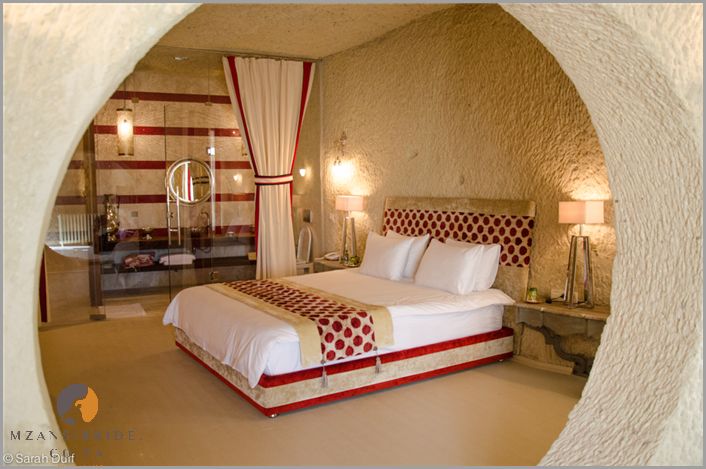Booking the Perfect Hotel Room: A Guide for Every Traveler
When I’m planning a getaway, the last thing I want is a terrible hotel room. It can really put a damper on the whole experience, no matter how short my stay may be. But over the years, I’ve learned a few tricks that have helped me find the best hotel rooms, no matter where I am.
Firstly, it’s all about doing your research. Don’t just rely on the hotel’s website or the photos they provide. Look for reviews from other travelers, as they can give you a more accurate picture of what to expect. Websites like TripAdvisor and Yelp are great places to find real, honest opinions from people who have actually stayed at the hotel.
Next, consider the location of the hotel. Is it close to the attractions or areas you want to visit? Is it in a safe neighborhood? These factors can greatly impact your overall experience. So make sure to do some research about the area surrounding the hotel.
Another important thing to consider is the amenities offered by the hotel. Are they important to you? Some people can’t live without a gym or a pool, while others prefer a more basic setup. Knowing what you want in terms of amenities will help narrow down your choices and find the perfect fit.
Of course, price is always a factor. It’s important to set a budget before you start looking for a hotel room. This will help you avoid overspending and ensure you find something within your means. And remember, sometimes the best deals can be found by booking directly through the hotel’s website or by calling them directly.
Lastly, don’t forget to trust your instincts. If something doesn’t feel right about a hotel, don’t book it. There are plenty of options out there, so keep looking until you find one that feels like the right fit for you.
So there you have it – my guide to booking the perfect hotel room every time. By doing your research, considering the location and amenities, setting a budget, and trusting your instincts, you’ll be well on your way to finding the ideal hotel for your next adventure. Happy travels!

Let’s face it, we can handle a bad meal or a mediocre museum, maybe even some overpriced souvenirs. But a terrible hotel? No way, I’d rather just stay home. I remember the last time I had a horrible hotel experience. It was a sleepless night with my husband, lying in a creaky bed, listening to the thunderous noise of a wedding party below us. It was a nightmare, and I promised myself that I would never go through that again.
Fortunately, my luck improved during my 93-day research trip across northern Tanzania. I only had two bad nights, both orchestrated by a tour operator who had ulterior motives. These experiences reaffirmed my belief that choosing the right hotel is the most important decision you make when you leave the comforts of home. So here’s my guide to finding the perfect room without breaking the bank.
1. Start with the basics
Plan ahead: If you’re traveling during peak season or school holidays, it’s crucial to plan at least six months in advance to secure the best room. If possible, try to decide where you’ll be staying at the start of the year, so you have a better chance of getting your desired room.
Call and ask questions: Don’t be shy about asking questions. Find out which rooms have the best views, which ones are the largest or closest to the beach – basically, whatever meets your criteria. Also, inquire about recent renovations, especially in the bathrooms. It’s usually best to choose a recently upgraded room unless it’s a heritage property. In that case, the older part of the hotel often has more character, which I prefer.
Opt for a room with a view: If there’s an elevator and you don’t mind a little exercise, always choose a room on the highest floor. The view will make your space feel more open and enjoyable.
Consider corner rooms: They are usually more spacious and have more windows, offering better natural light and views.
Choose a double bed: Even if you’re traveling alone, it’s better to specify a room with a double bed. It’s more comfortable and fits the proportion of the room better.
Get confirmation: To ensure that you get the room you want, send an email requesting your preferred room, and make sure you receive a confirmation before your arrival. Keep the confirmation handy when you check-in.
2. Uncover Hidden Gems on Tripadvisor – with a Twist
Imagine a place where over 150 million people have shared their opinions on hotels and guest houses from around the world. Well, welcome to tripadvisor.com! It’s a goldmine of information that you shouldn’t ignore when booking your next adventure. But, as with everything, there are a few things you need to keep in mind. Let me guide you through the intricacies of this double-edged sword.
First off, tripadvisor.com is an invaluable resource for finding a reputable and well-reviewed place to stay. I mean, why would you risk staying at an established hotel or guest house that hasn’t been reviewed by fellow travelers? It’s like wandering into the unknown! That’s why I always turn to tripadvisor.com to get the lowdown on accommodations.
However, and this is a big “however,” finding the perfect match can be a bit tricky. It’s like searching for a needle in a haystack, but hey, that’s why I’m here to help you navigate the treacherous waters. You see, not all reviewers are created equal. You need to find someone whose taste matches yours. Someone who shares your preferences and priorities. Otherwise, you might end up in a place that’s just not your cup of tea.
Oh, and here’s a fun fact for you: some dishonest hotel owners try to bend the rules by hosting reviewers, hoping they’ll write a fantastic review in return. Sneaky, right? And it doesn’t stop there. They also try to sabotage their competitors by posting negative reviews. It’s a cutthroat game, my friend.
But don’t worry, I’ve got your back. Here’s how you can make the most out of tripadvisor.com while sidestepping the pitfalls:
- Step 1: Know Where You Want to Stay – tripadvisor.com is not the place to find your dream destination. This is where you go when you’ve already decided on the location. So, make sure you have your heart set on a particular place before diving into the reviews.
- Step 2: Scout for Trustworthy Reviewers – look for reviewers who have proven themselves to be reliable. You want someone who consistently gives accurate and thoughtful reviews. Take a look at their profile and see if they align with your preferences. This way, you’ll have a higher chance of finding a place that suits your needs.
- Step 3: Read Between the Lines – when reading reviews, don’t just focus on the overall rating. Take the time to dig deeper. Sometimes, people leave negative reviews for reasons that may not be important to you. It’s all about finding the right balance and understanding what matters most to you.
- Step 4: Sort and Filter – tripadvisor.com offers a range of sorting and filtering options. Use them wisely to narrow down your choices. If location is your top priority, filter accordingly. If you want to see the most recent reviews, sort by date. It’s your call.
By following these simple steps, you can harness the power of tripadvisor.com and make informed decisions. It’s your secret weapon for finding the hidden gems that others might miss. So, why leave your next adventure to chance when tripadvisor.com is just a click away? Happy exploring!
Looking for accommodations in a specific destination? Make sure you check all the categories available, such as B&Bs, hotels, and ‘speciality lodgings’. Don’t just settle for the top five options – take the time to study the websites of at least the first 15 ranked accommodations. Sometimes, the best choice for you is hidden further down the list, away from the most popular ones.
Now, let’s address a common concern – negative reviews. It’s important not to let a few isolated ‘poor’ or ‘terrible’ reviews sway your decision. Sometimes, these reviews can be misleading. For example, let me tell you about one of my top five recommendations in Sabi Sand. It is currently ranked 22, mainly because a guest who had only posted one review (which, let’s admit, is suspicious) claimed the place was ‘horrible’ just because the staff searched her bags. You see, it’s crucial to take such reviews with a grain of salt and not automatically dismiss an accommodation based on them.
When it comes to booking, remember that if you opt for a small, owner-run establishment like a B&B or a guest house, it’s better to book directly on their website. This way, more of the money you spend goes directly to supporting the establishment.
Now, let me give you some tips for your research:
Reliance on TripAdvisor alone is like using only Wikipedia to complete your homework – it’s not enough. Your holiday is precious, so take the time to dig deeper and find the hidden gems. Another useful website for research is Booking.com. If pricing is a major concern for you, this site will be a great help. You can prioritize your search by price and browse through all the available rooms for your desired travel dates. The rooms are ranked from the cheapest to the most expensive, and the average ratings from past guests are clearly displayed. It’s important to take fellow travelers’ opinions into account – there’s no point in booking the cheapest room if its rating is only 5.2 (based on 49 reviews), when you can pay just a little more per night for a room with a rating of 7.1 (based on 119 reviews). As a general rule, avoid accommodations with a score of less than seven, and if you can afford it, make eight the cut-off point.
Apart from TripAdvisor and Booking.com, there are other websites where fellow travelers share their reviews. For international and local options, you can check out airbnb.com. If you’re looking for accommodations in South Africa, safarinow.com is a good choice. Additionally, if you’re planning a safari, websites like expertafrica.com and africatravelresources.com offer helpful information and reviews.
Here’s a little secret: When you’ve made up your mind about where you want to stay, reach out to them directly. You might be surprised at what you can get through negotiation. Since they don’t have to pay booking site commissions, they may offer you a discount off the regular price. It’s definitely worth a shot, especially during slow times of the year.
4. A Picture is Worth a Thousand Words
When I’m browsing the web in search of a hotel or guest house to stay at, one of the first things I notice is the quality of the photos. They say a picture is worth a thousand words, and that’s certainly true when it comes to accommodations. If the pictures on a website or booking site are low-quality or poorly taken, it makes me question the attention to detail and overall presentation of the establishment.
Now, I understand that not every place can afford to hire a professional photographer. But if a hotel or guest house isn’t willing to invest in high-quality images of their rooms, it makes me wonder if they prioritize the comfort and satisfaction of their guests. A small investment in professional photography can make a big difference in the way a place is perceived.
Another red flag for me is when I come across websites that use generic location images instead of showcasing their actual rooms. This lack of transparency raises concerns about what the rooms really look like. I want to see the room I’ll be staying in, not just a beautiful landscape or building. So, when a website fails to provide clear photographs of each room category, it leaves me feeling skeptical and hesitant to make a booking.
However, if I do find a place that catches my eye despite the lack of professional photos, I always make a point to call and speak to someone directly. There’s something about a conversation with the owner or receptionist that can give you a sense of the warmth and efficiency you can expect during your stay. It’s important to connect with the people running the establishment and get a feel for their hospitality.
A final tip: never book a hotel or guest house that only provides an email for contact. This lack of direct communication suggests a lack of personal interaction and responsiveness, which are crucial when it comes to making reservations and handling any issues that may arise.
5. Proceed with Caution: Is a Package Deal Really Worth It?
There’s something appealing about a package deal – the convenience, the bundled price – but don’t be fooled. More often than not, the reality doesn’t live up to the hype. That’s not to say that all package deals are subpar, but they certainly warrant careful consideration. Before committing to one, take the time to do your due diligence. Read reviews, calculate the cost of the deal without the enticing ‘free’ extras, and explore alternative accommodations within your budget range. A smarter move might even be to customize your own package with the help of a local expert who knows the destination inside out.







